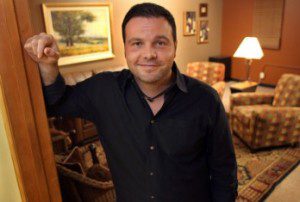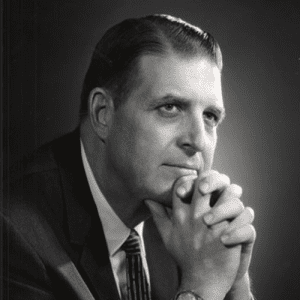 Salon took a look this week at the Promise Keepers. It’s an interesting read. Here are some key quotations on the organization that rose to huge prominence in the 1990s and then tanked.
Salon took a look this week at the Promise Keepers. It’s an interesting read. Here are some key quotations on the organization that rose to huge prominence in the 1990s and then tanked.
Here’s the basic story:
In the 1990s, the evangelical men’s ministry the Promise Keepers packed 50,000-seat football stadiums and even stuffed the Mall in Washington, D.C., with close to 600,000 sweaty, Jesus-loving males. Marshaled by Bill McCartney, a former University of Colorado football coach, the group took the evangelical world by storm. But P.K.’s star fell as rapidly as it rose, particularly after McCartney departed the organization in 2003 to establish a group that brings Christians and Messianic Jews together. Now McCartney is back, and he’s trying very hard to resurrect the Promise Keepers.
Here’s what the article’s author believes account for the popularity of PKs:
McCartney aimed for P.K. to infiltrate every church in America— regardless of its specific denomination. After the stadium rallies swept through town, P.K. men were to take what they learned back to their local church and, in small groups, share the struggles they faced in their attempts to be godly men. In Bartkowski’s essay “Breaking Walls, Raising Fences,” an interviewee recalled that in one P.K. small-group moment, “otherwise ‘strong men’ ended up weeping profusely and rolling on the floor in anguish after learning that the vast majority of them had been sexually abused as children.” P.K. uniquely allowed men to be vulnerable and intimate with one another. The organization presented the perfect combination of religion and pop psychology, a mishmash that would appeal to men from diverse backgrounds: those who felt their worldview aligned with P.K. as well as those who may have had a less clear vision but who clung to the opportunity for self-improvement, as Stephen D. Johnson noted in “Who Supports the Promise Keepers?“
These are the groups the organization is targeting now:
But as Bartkowski has noted, herein lies part of P.K.’s genius and one reason for the group’s success. By mixing authoritarianism with a dash of gentleness, P.K. offered men—indeed, entire families—a combination of patriarchy and egalitarianism that is likely to continue even now that P.K. has made a formal invitation to women. The ministry plans to include women by focusing on what men should do in relation to them—honor them, respect them, etc. But the question is: What incentive will women have to hover by the football benches? To stand by their men?
The other group the Promise Keepers want to bring into the fold is Messianic Jews, whom McCartney also tried to reach out to as part of his organization Road to Jerusalem. Messianic Jews—cultural Jews who believe Christ is the Messiah—and evangelicals have something other than just Jesus in common: an interest in the preservation of Israel. But P.K. also uses Romans 11:11 as inspiration, arguing that the passage indicates that salvation to Christians came as a way of making all nonbelievers jealous. Part of P.K.’s mission, then, is to fill all non-Christians with envy, causing them to yearn for the zeal they have for Jesus. But, again, the question is, what’s in it for the Messianic Jews? Messianic Jews already believe they have Jesus in their heart; they strive to be accepted by mainstream Jews and are likely to be wary of aligning themselves with an evangelical organization. Although they share a belief in Jesus, Messianic Jews want to be seen as authentic Jews, not evangelical Christians.
The whole thing is an interesting read. It’s interesting to note how rapidly groups like Promise Keepers can rise to major prominence–and it’s also interesting to see how quickly they can fade. We’re reminded of the unsexy but steady presence of the local church. This isn’t to bash PKs; it has done some good things. But it is to note that God’s plan A is the local church.
By the way, here’s a powerful recounting from Sports Illustrated of the change that took place some years ago in Bill McCartney’s life.











